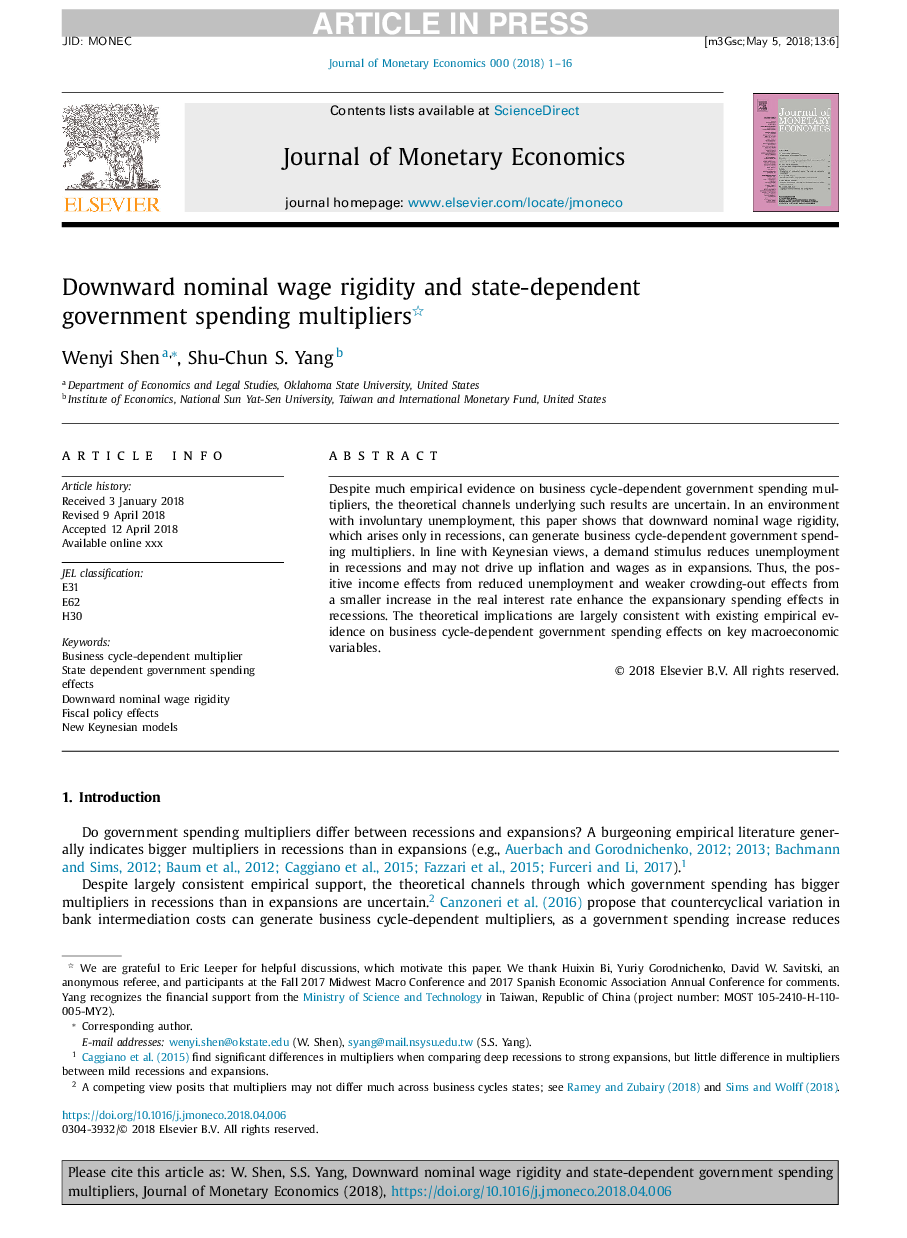| Article ID | Journal | Published Year | Pages | File Type |
|---|---|---|---|---|
| 10153725 | Journal of Monetary Economics | 2018 | 16 Pages |
Abstract
Despite much empirical evidence on business cycle-dependent government spending multipliers, the theoretical channels underlying such results are uncertain. In an environment with involuntary unemployment, this paper shows that downward nominal wage rigidity, which arises only in recessions, can generate business cycle-dependent government spending multipliers. In line with Keynesian views, a demand stimulus reduces unemployment in recessions and may not drive up inflation and wages as in expansions. Thus, the positive income effects from reduced unemployment and weaker crowding-out effects from a smaller increase in the real interest rate enhance the expansionary spending effects in recessions. The theoretical implications are largely consistent with existing empirical evidence on business cycle-dependent government spending effects on key macroeconomic variables.
Related Topics
Social Sciences and Humanities
Economics, Econometrics and Finance
Economics and Econometrics
Authors
Wenyi Shen, Shu-Chun S. Yang,
